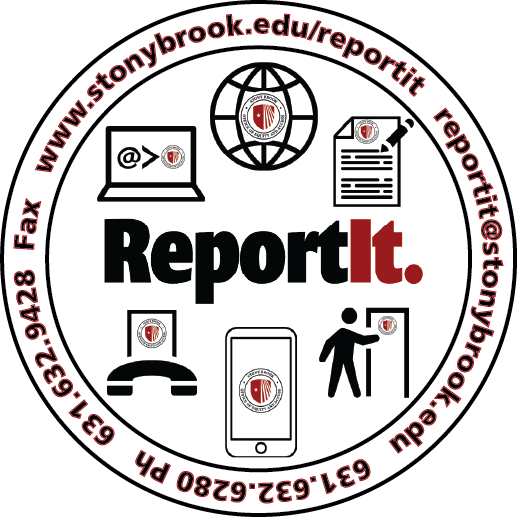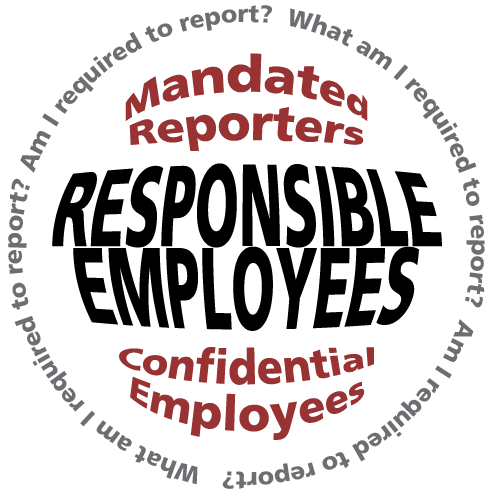
REPORT AN INCIDENT
Respect, Support, Empowerment
Information on reporting an incident to Stony Brook University. Reporting discrimination can be an important step in empowerment and being a voice for others.
Reporting Options
If you are the victim of discrimination, we are here to help.
OEA Report Form for Allegations of Discrimination
Report to the AVP for OEA
Marjolie Leonard Coker, AVP OEA
24/7 Online Report Form
Call OEA
Send an Email
Send A Fax
631.632.9428
Paper Complaint
Complaint Procedure for Allegations of Discrimination
Is Walk-in Reporting Available?
OEA does not have a policy against taking verbal complaints from individuals who walk into our West Campus office at 201 Administration to report an incident. We want every individual who may have experienced discrimination to reach out for help as soon as possible in whatever method is most comfortable for them. We cannot guarantee, however, that one of our investigators will always be available without an appointment. Throughout the day our investigations team is often in meetings concerning other reported matters. The best way to discuss an incident face-to-face is to file a complaint online or to file a complaint using one of the other options outlined above. Within three business days, one of our team will schedule an appointment with you to discuss the matter. If you feel the matter must be discussed more urgently or if you are unable to use one of our other methods of reporting due to a disability or some other issue, you can call our office at 631.632.6280 to schedule an appointment and we will do our best to accommodate you. If there is an ongoing emergency that you need to discuss immediately. you should contact University (333) or local police (911).
We maintain an office in the University Hospital for the convenience of our east campus students and employees. However, our East Campus office is by appointment only.
Other SBU Reporting Options
EMPLOYEE AND LABOR RELATIONS
(631)632-6140
Stony Brook Hospital
HSC Level 3 Room 040
(631) 444-3780
Long Island State Veterans Home
(631)444-8617
STUDENT CONDUCT AND COMMUNITY STANDARDS
Stony Brook Union, Suite 209
communitystandards@stonybrook.edu
631.632.6705 Phone
631.632.5757 Fax
Why we want everyone to report.
Reporting discrimination can be an important step in taking back control while seeking support. Here are some reasons why you might consider reporting discrimination:
- Prevention: Reporting discrimination can help to protect yourself and other students and employees from any recurrence of this behavior. As soon as OEA receives a report, when appropriate, we can take interim steps to prevent the risk of harassment or harm to other members of the University Community.
- Support: There are various ways that OEA can assist reporting individuals, including assistance with accessing support services, interim measures such as a no-contact directive or interim suspension, classroom and residence hall changes, and academic accommodations and support.
- Accountability: Discrimination, including discriminatory harassment, is prohibited behavior and a violation of the Stony Brook University Policy Manual and the Code of Student Responsibility. Reporting discrimination to OEA will begin a process designed to hold individuals who violate these policies accountable for their actions. If Stony Brook University finds the individual violated Stony Brook University policy, it can take disciplinary action, up to and including suspension, termination, or expulsion.
- Advocacy: By reporting discrimination, you are taking a stand that this behavior is not acceptable in our University community. This can have ripple effects that help create an equitable and inclusive culture not only at Stony Brook University, but in the larger community and the world.
At Stony Brook University, we value all students, employees, and job candidates as unique individuals, and we welcome the variety of experiences they bring to our institution. As such, we have a strict non-discrimination policy. It is the policy of Stony Brook University not to discriminate on the basis of race, color, national origin, religion, sex, pregnancy, familial status, sexual orientation, gender identity or expression, age, genetic information, disability, protected veteran status, or any other characteristic protected by law.



 SUPPORT SERVICES
SUPPORT SERVICES SUPPORT OTHERS
SUPPORT OTHERS